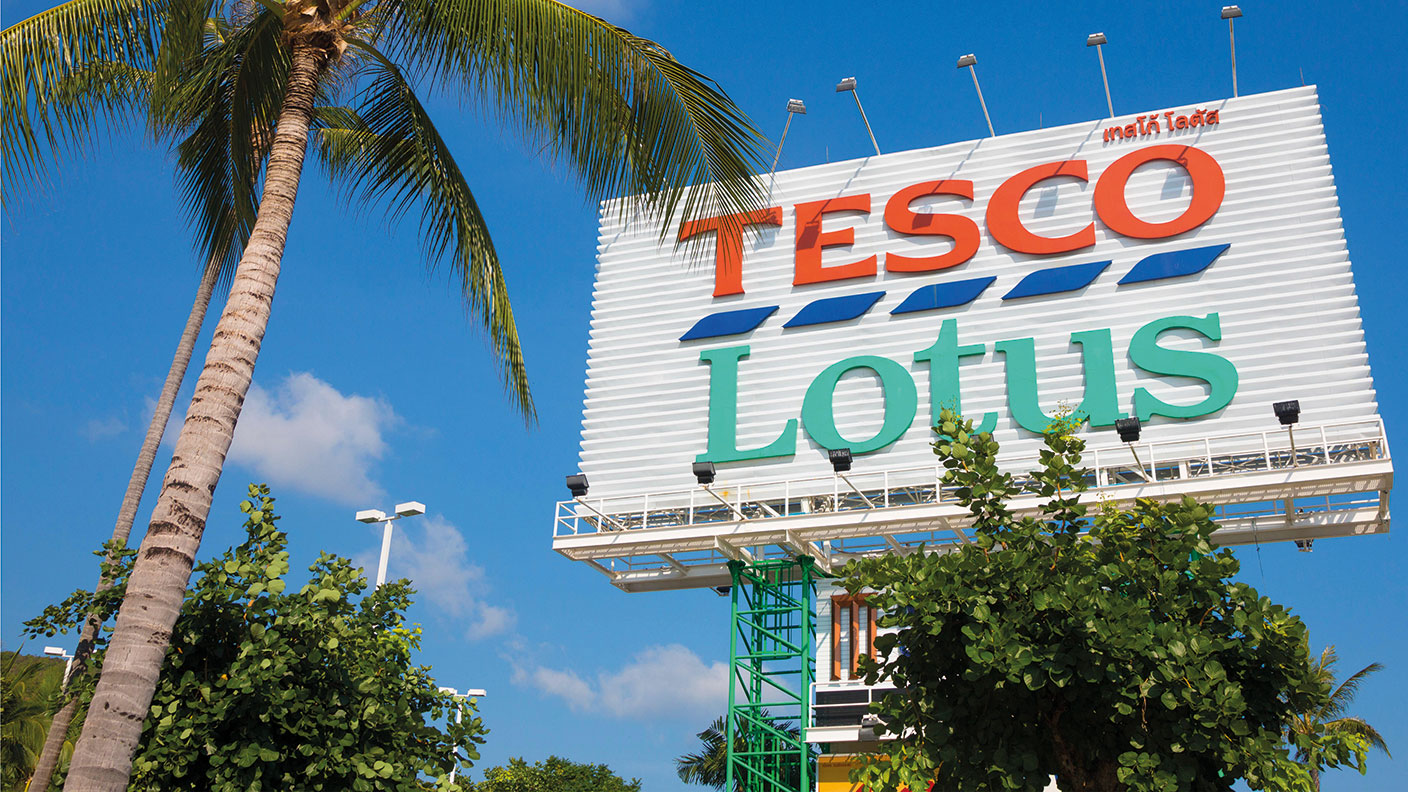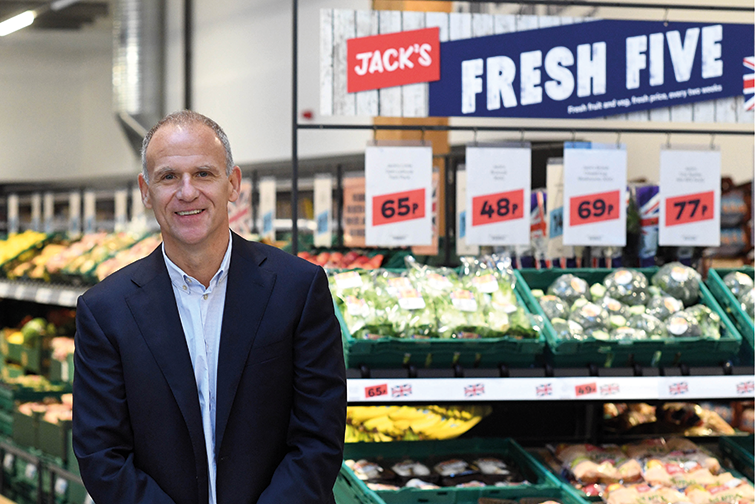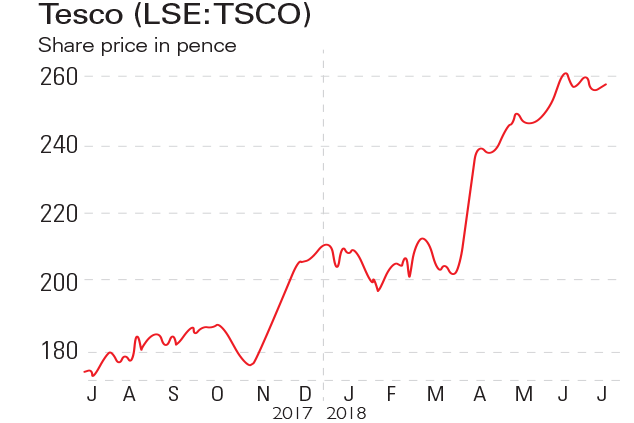Lessons from Tesco’s turnaround
Retailers have it tough, but Tesco has shown that it’s still possible to thrive, says Matthew Lynn.

Get the latest financial news, insights and expert analysis from our award-winning MoneyWeek team, to help you understand what really matters when it comes to your finances.
You are now subscribed
Your newsletter sign-up was successful
Want to add more newsletters?

Twice daily
MoneyWeek
Get the latest financial news, insights and expert analysis from our award-winning MoneyWeek team, to help you understand what really matters when it comes to your finances.

Four times a week
Look After My Bills
Sign up to our free money-saving newsletter, filled with the latest news and expert advice to help you find the best tips and deals for managing your bills. Start saving today!

Retailers have it tough, but one supermarket at least has shown that it's still possible to thrive, says Matthew Lynn.
Three years ago just about everything that could go wrong had gone wrong for Tesco. From a high of more than 400p back in 2013, only a year ago the shares had dropped as low as 160p. And now? They have climbed all the way back to 260p, for a one-year gain of more than 60%. That came on the back of figures in June showing a 2.1% rise in sales, the tenth consecutive quarter when its overall revenues were up. That is a remarkable turnaround from Tesco's reported loss of £6.4bn in 2014. At a time when every mainstream retailer seems to be under intense pressure, and with shops closing every week, what are the lessons to be learned from Tesco's comeback?
1. Bring in an outsider
For a company with a long record of promoting its own people from within, it was a bold move to bring in someonefrom outside retail. But Dave Lewis, who joined them from Unilever, has proved an inspired choice. He knows about marketing, food and branded goods, but he had none of the preconceptions that come with a career in the grocery trade. He has brought fresh thinking to Tesco's business, and re-energised a management team that had started to seem confused and jaded. A lot more retailers should bring in people from other industries they could use a fresh vision right now.
MoneyWeek
Subscribe to MoneyWeek today and get your first six magazine issues absolutely FREE

Sign up to Money Morning
Don't miss the latest investment and personal finances news, market analysis, plus money-saving tips with our free twice-daily newsletter
Don't miss the latest investment and personal finances news, market analysis, plus money-saving tips with our free twice-daily newsletter
2. Slim down
Tesco had expanded too quickly, and into too many areas. It spent millions building a business in the US, a traditional graveyard for British retailers. It tried to compete with Amazon in online retailing, a hopeless mission, and dabbled in family restaurants, garden centres and coffee shops. Most of these were expensive follies and have since been sold off. The business that remains will have fewer global ambitions, but the management has a lot more time to focus on the core business.
3. Focus on value and service
Tesco's business was built on a pile-it-high-and-sell-it-cheap philosophy, but as it grew larger and larger it started to lose sight of that. The likes of Aldi and Lidl were cheaper, and Waitrose and M&S both offered better quality. Tesco was increasingly stranded in the middle, neither especially good nor particularly cheap. It was never going to be able to match the discounters completely on price, at least not without destroying its profitability. But it has relentlessly controlled prices, while at the same time improving its quality and the service in its stores. The result? It has a clear offering again, and one that still seems popular with shoppers.
4. Bulk up where necessary
A couple of years ago, it would have been impossible for Tesco to make an acquisition. The City would never have supported it. But this year Tesco completed the £4bn takeover of Booker, the UK's largest food wholesaler. Shareholders were sceptical about the deal to start with, but if it can deliver greater purchasing power and operational efficiencies, then Tesco can increase its lock on the UK market and make it more profitable as well. Lots of retailers have been scared away from deals, or have made purely defensive moves such as the proposed Sainsbury's-Asda merger. But Tesco has not just been slimming down and defending what it has it has also been making some aggressive moves forwards to complete its turnaround.
True, there are still plenty of challenges ahead. In the UK retailing remains a brutal business, with stagnant real incomes, ferocious competition from online retailers, and punishing increases in staff costs and taxes, in particular astronomical business rates. It might all come unstuck for Lewis and Tesco at any time, and that would plunge the company back into crisis. Even so, its recovery shows that retailing is not a completely hopeless industry. Anyone who backed a Tesco turnaround by buying the shares a year ago will have done well.
Get the latest financial news, insights and expert analysis from our award-winning MoneyWeek team, to help you understand what really matters when it comes to your finances.

Matthew Lynn is a columnist for Bloomberg and writes weekly commentary syndicated in papers such as the Daily Telegraph, Die Welt, the Sydney Morning Herald, the South China Morning Post and the Miami Herald. He is also an associate editor of Spectator Business, and a regular contributor to The Spectator. Before that, he worked for the business section of the Sunday Times for ten years.
-
 How a ‘great view’ from your home can boost its value by 35%
How a ‘great view’ from your home can boost its value by 35%A house that comes with a picturesque backdrop could add tens of thousands of pounds to its asking price – but how does each region compare?
-
 What is a care fees annuity and how much does it cost?
What is a care fees annuity and how much does it cost?How we will be cared for in our later years – and how much we are willing to pay for it – are conversations best had as early as possible. One option to cover the cost is a care fees annuity. We look at the pros and cons.
-
 How to profit from rising food prices: which stocks should you invest in?
How to profit from rising food prices: which stocks should you invest in?Tips Food prices are rising – we look at the stocks to avoid and the one to invest in this sector.
-
 Tesco looks well-placed to ride out the cost of living crisis – investors take note
Tesco looks well-placed to ride out the cost of living crisis – investors take noteAnalysis Surging inflation is bad news for retailers. But supermarket giant Tesco looks better placed to cope than most, says Rupert Hargreaves.
-
 Tesco sells its retail subsidiary in Thailand and Malaysia for £8bn
Tesco sells its retail subsidiary in Thailand and Malaysia for £8bnNews Tesco has agreed to sell its southeast Asian operations to Thai conglomerate Charoen Pokphand for £8.2bn in cash.
-
 Tesco should keep its Asian assets
Tesco should keep its Asian assetsOpinion The £7bn that Tesco could get for its Tesco Lotus business in Asia looks enticing. But holding on to it would be smarter, says Matthew Lynn.
-
 Tesco cashes out of the mortgage business
Tesco cashes out of the mortgage businessFeatures Tesco Bank has left the mortgage market by selling its £3.7bn loan book. Its 23,000 customers will be moved to the Halifax, a subsidiary of Lloyds.
-
 Tesco wields the axe
Tesco wields the axeFeatures Britain’s biggest supermarket is cutting back on staff and fresh food. Will the move prove counterproductive? Matthew Partridge reports.
-
 If you'd invested in: Tesco and Associated British Foods
If you'd invested in: Tesco and Associated British FoodsFeatures Tesco has seen its market value rise almost 50% in a year, while AB Foods has seen shares slide despite a rise in profits.
-
 What's behind Tesco’s alliance with Carrefour?
What's behind Tesco’s alliance with Carrefour?Features Tesco is clubbing together with French rival Carrefour to bulk buy own-label goods in an effort to cut costs. Will it succeed? Ben Judge reports.